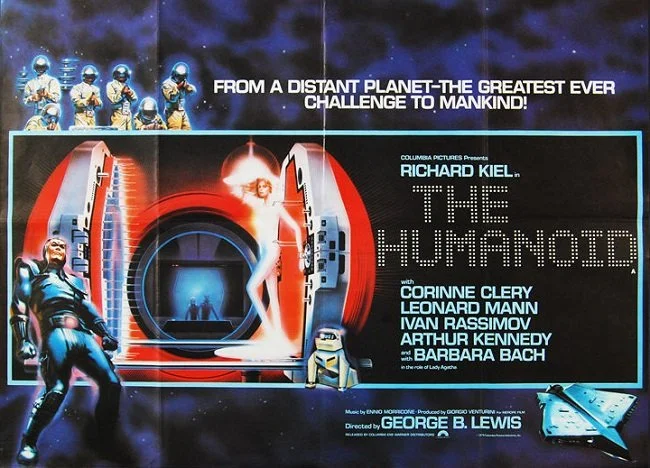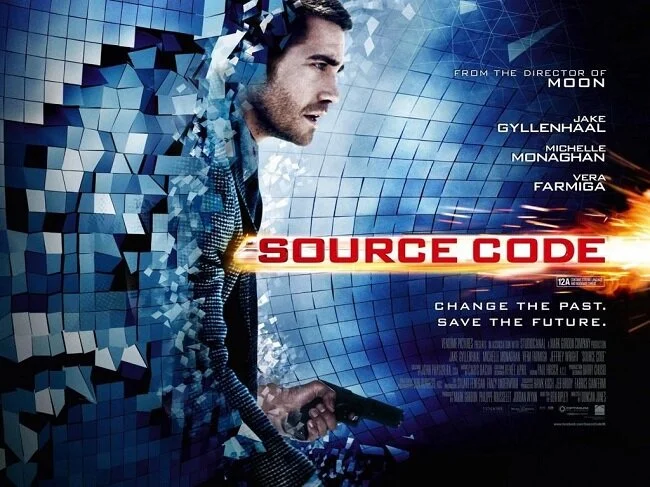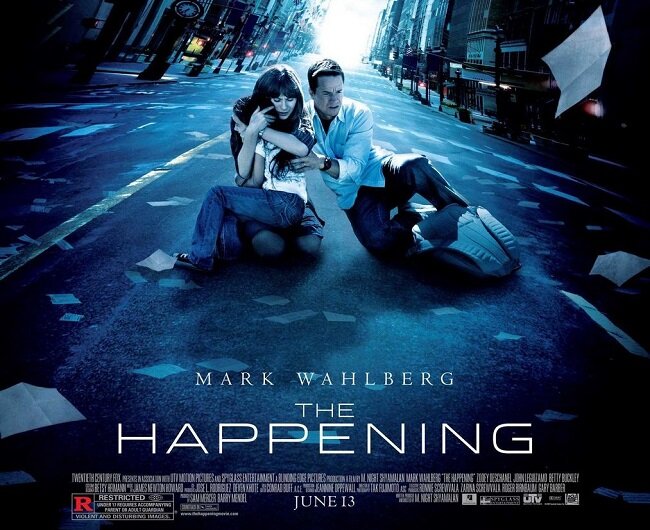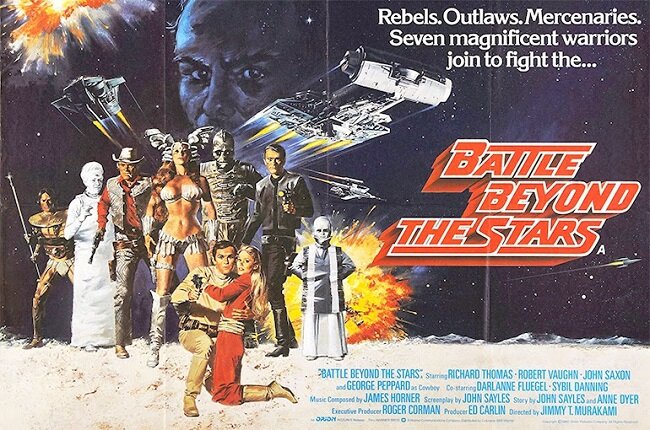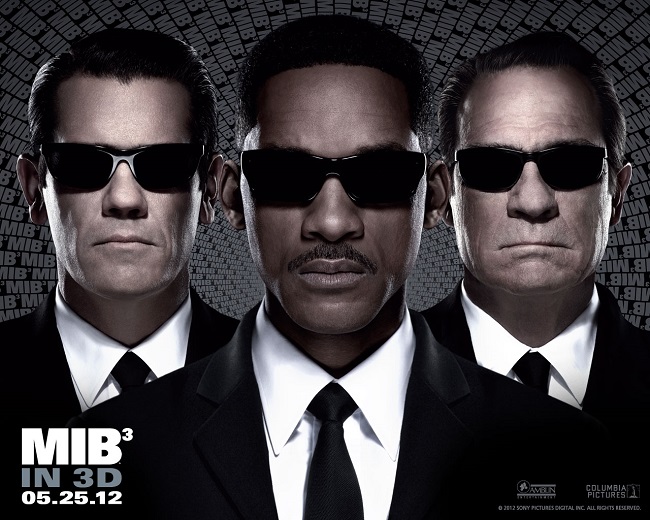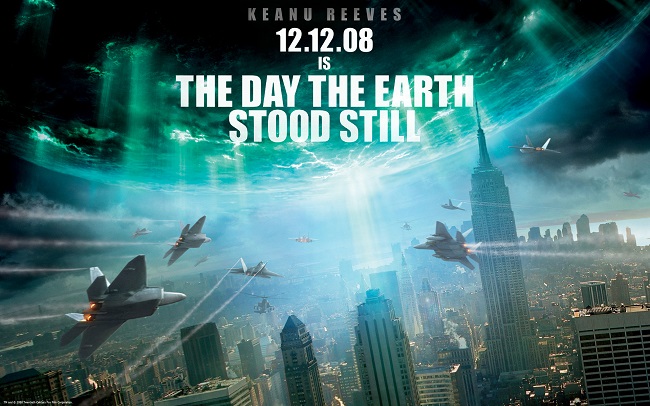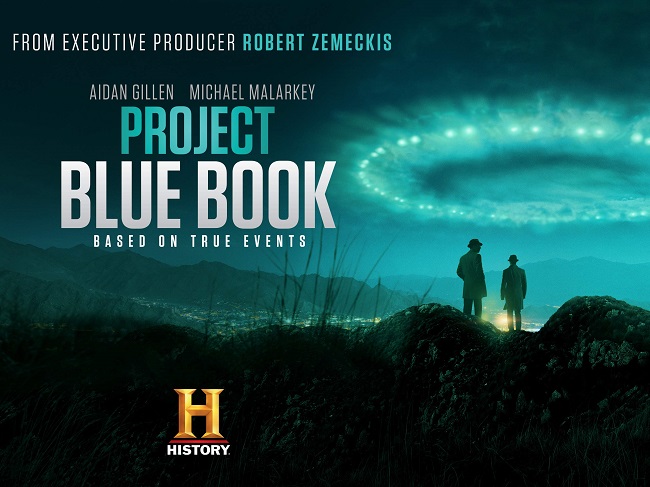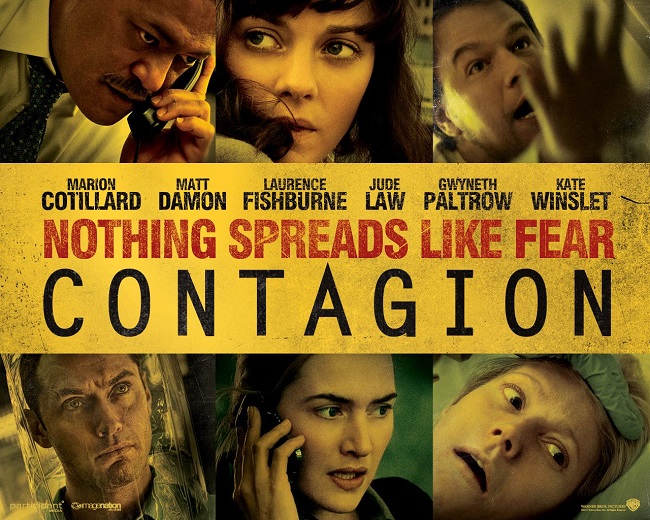Contagion (2011)
Director Steven Soderbergh is no stranger to complex narratives, shot in a near documentary style. And this is exactly this approach that he brings to bear upon Contagion. A movie that beneath its contemporary trappings, still has the air of an all-star disaster movie. Unlike so many current films which suffer from underdeveloped characters due to poor writing, Soderbergh makes conscious decision to focus more upon the mechanics and nature of a global pandemic than the main protagonists. This somewhat detached approach may not be to all viewers liking. But the format starkly scrutinises and catalogues events in an honest fashion and doesn’t shy away from the realities of the situation or get side tracked by the emotional aspects of the ongoing human tragedy.
Although the movie is driven by the technicalities of the narrative, there is still a strong ensemble cast. This includes that includes Marion Cotillard, Bryan Cranston, Matt Damon, Laurence Fishburne, Jude Law, Gwyneth Paltrow, Kate Winslet, and Jennifer Ehle. But Contagion is mainly concerned with the logistics of managing an outbreak of global proportions. It also scrutinises the governmental procedures and protocols for dealing with public health issues. The story interestingly draws parallels between the spread of the virus and the resulting panic via social media and Internet. It clearly demonstrates that the weak link in any national strategy for containing a pandemic is the public themselves. The film excels at showing the transference of germs via the most innocuous means. You could also argue that the original source of contamination, made via a credit card, is a broader metaphor itself.
There are some very modern themes included into the story. The idea of blogging and social networks as a potentially negative force (within the confines of the plot) is a clever concept. There is also an exploration of homeopathy and the trend among certain areas of society to reject science and the look for solace elsewhere. The juxtaposition between the proliferation of technology and its failure to cope with the growing public health issue is handled well. Although a lot of traditional ideas and imagery associated with this subgenre are used, they are dealt with in a subtly different fashion from other movies of this idiom. The military response, the use of mass graves and the subsequent social unrest are not skewed by any moral stance. They are simply shown as cause and effect.
There were allegations of racism from some quarters, upon the film’s release, but I do not think this is the case. The fact that the virus originates in the Far East, simply reflects genuine issues that real countries face due to rapidly growing populations and industrialisation. The plot reflects genuine health scares of recent years and does not carry any subtext or message that I was aware of. Viewers have also questioned the irrational behaviour of cast, especially those representing the wider public. Has not history continuously shown us that people often make poor decisions in times of trouble? I would also argue that this is a plot device which enables the narrative to move forward and hence is a necessary evil.
Unlike Wolfgang Petersen’s Outbreak, Contagion purposely avoids an excess of human drama among the wider catastrophe. Rather than grim scenes of carnage, the film builds tension through depicting a credible disaster and remind viewers of the ongoing battle against the microscopic world that society fights every day. I enjoyed Steven Soderbergh’s somewhat cold approach and certainly did not feel that Contagion was a hectoring faux science documentary, as some is labelled it. This is not Irwin Allen. There are no noble sacrifices, broken relationships fixed upon the way, or valuable lessons learned about life. It is Soderbergh’s refusal to add any cinematic sweetener to the proceedings that makes Contagion so effective.




